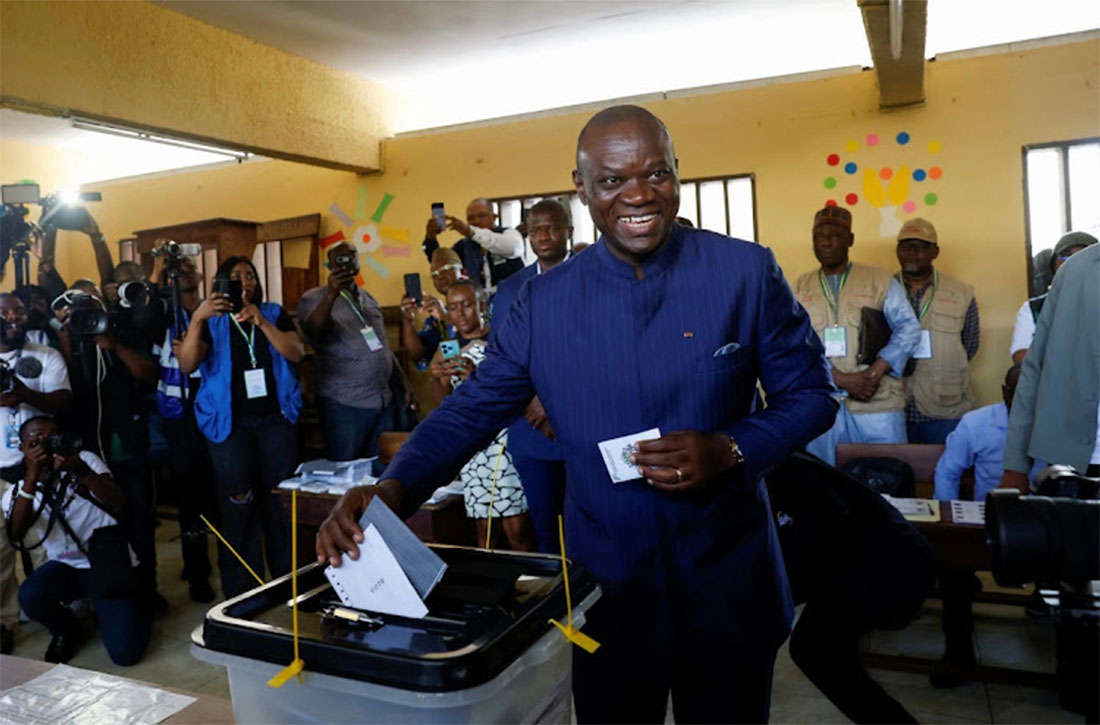Photo Credit: Getty Images
General Brice Oligui Nguema has won Gabon's presidential election with an overwhelming 90% of the vote, according to provisional results announced Sunday by the Interior Ministry. The military leader, who orchestrated the 2023 coup that ended the Bongo family's 55-year dynastic rule, defeated seven other candidates in Saturday's election.
Voter turnout reached an impressive 70.4%, significantly higher than the 56.65% recorded in the disputed August 2023 election that triggered the coup. Nguema's main challenger, former Prime Minister Alain Claude Bilie-By-Nze, secured just over 3% of the votes.
"Brice Clotaire Oligui Nguema is elected president by absolute majority of votes cast, with 575,222 votes," Interior Minister Hermann Immongault announced. The outcome grants Nguema a seven-year mandate, renewable once under the country's constitution.
Critics had previously argued that the new electoral code was designed to favor Nguema, with some potential challengers excluded from the race. On election day, Bilie-By-Nze warned about "potential problems" during the counting process, while Nguema maintained the electoral process was "transparent."
Despite Gabon's abundant natural resources—including substantial reserves of oil, gold, and manganese—the country of 2.2 million people faces significant economic challenges. Nearly 40% of young people remain unemployed, according to 2024 World Bank data, and approximately 35% of the population lives below the poverty line of $2 per day.
"People here are focused on immediate needs: restoring electricity, addressing food shortages, creating jobs, and ensuring the country's vast natural wealth benefits ordinary citizens," reported Al Jazeera's Ali Hashem from Libreville.
Nguema, who previously served as head of the Republican Guard under former President Ali Bongo, campaigned as a reformer. Wearing his signature baseball cap emblazoned with the slogan "We Build Together," he promised to combat corruption, diversify the oil-dependent economy, and invest in agriculture, tourism, and industry.
The World Bank reports Gabon's economy expanded by 2.9% in 2024, up from 2.4% the previous year, buoyed by infrastructure development and increased output of oil, timber, and manganese. However, with $3 billion in international debt, Gabon faces pressure to establish democratic legitimacy and economic stability.
Many observers remain skeptical about prospects for genuine change. "The political establishment in Gabon is still deeply intertwined with the Bongo era," noted Hashem. "The general himself led the Republican Guard under Ali Bongo, while his main rival served as prime minister under the same regime. So people are wondering: is this a genuine break from the old system, or just a rebranding?"
As Nguema transitions from coup leader to elected president, his administration faces the monumental task of addressing decades of inequality and corruption while delivering on promises of reform and economic opportunity for all Gabonese citizens.


